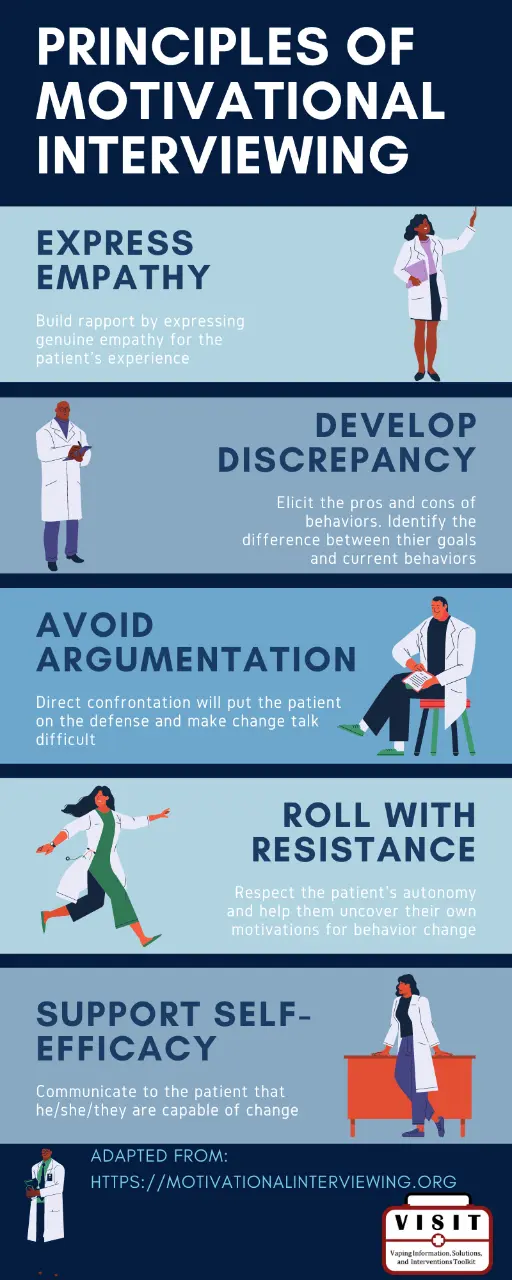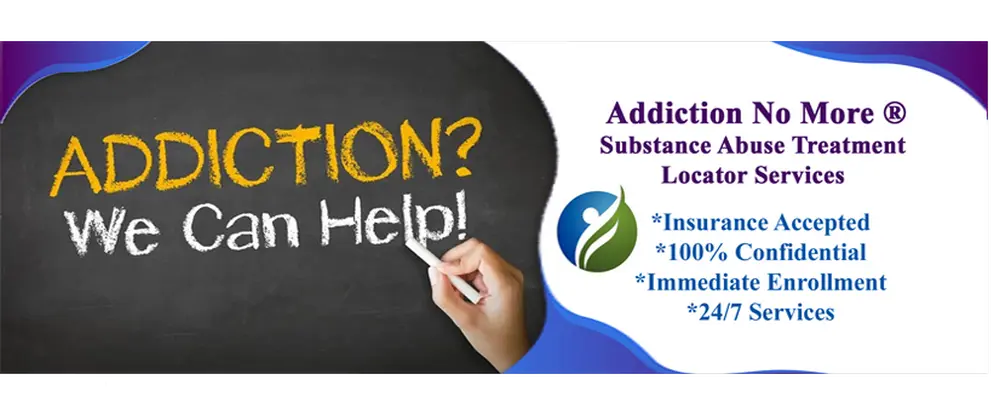Motivational Interviewing
Understanding motivational interviewing and how it works for substance use treatment:
Motivational interviewing when used for substance use disorders incorporates a therapeutic approach to treatment that addresses your resistance to change while working to increase your motivation to accept change in your behavior. It is designed to help reinforce a person’s motivation towards a specific goal by exploring a person’s reasons for change while in an environment of acceptance, compassion, and collaboration.
1-800-513-5423

How motivational interviewing works
Spirit of motivational interviewingCompassion: This is the therapist’s commitment so they can serve the individual who is considering a behavioral change through motivational interviewing. The commitment to the individual through this process will help them culminate compassion and help them pursue their best interests. A practitioner does not have to suffer with the client but rather acknowledges how the client overcame the situation or prioritized something important to them.
Acceptance: The work of Carl Rogers has had a profound impact on the evolution of motivational interviewing. This is especially true when it relates to the acceptance of the client. The practitioner does not always have to agree or approve of the clients’ actions but always honors the potential worth of every human being encountered. There are 4 aspects of acceptance:
Affirmation: This is where the therapist acknowledges the client’s strengths and efforts without telling how things can be fixed, or pointing out what is wrong. An affirmation is not praising the client or giving them an attaboy but rather an acknowledgment of how the client got through the situation while prioritizing something important to them. Affirmation is more about the individual than the behaviors.
Autonomy support: For change to occur it is better that the client believes that they can change rather than being told what to do or how to do it. By acknowledging a person’s freedom to change and choose how to make those changes the client understands that they can change and already have the tools that are needed to do so.
Accurate empathy: The practitioner needs to be as genuine as possible while taking an active interest while attempting to understand the client’s internal perspective on the experience. This is to sense the client’s inner world or private personal meaning as if it were their own but done without losing the “as if” quality.
Absolute worth: This is a concept that emphasizes having respect for a client’s worth and dignity. This concept reinforces that everyone’s dignity is the same and that we are all trying to find out who we are, where we are headed, and how we are going to get there.
Collaboration: MI is a relationship between the counselor and client; as counselors, it is important to remind ourselves that the client is the expert on their experiences and that our goal is to honor those experiences, perspectives, and choices, even if we disagree with them. The client will do all the heavy lifting for change to become sustainable, with the counselor’s role being guidance and support through this process. This is a collaboration between two people who have a lot to offer each other.
Evocation: is is used to help the client identify the wisdom and reasons for wanting to change their behavior. The practitioner assumes that the client is capable of change and wants to change. The counselor can then evoke from their clients why and how they will change by understanding their strengths and resources that will be used to make the change.

Image from https://motivationalinterviewing.org/
What to expect from motivational interviewing for substance abuse conditions
Motivational Interviewing (MI) I will help the client lay out the pros and cons of stopping the use of drugs or alcohol based on what the client feels is important. The client weighs the pros and cons of drug or alcohol overuse, their want or desire to change, what change would look like, and how they want to make the change, it then becomes easier for the client to have an easier time making that change. The individual will not feel forced to make a change but instead, they are making the changes they choose to make.Find an MI counselor and rehab center near you
When seeking treatment for a SUD, motivational interviewing could be a very effective part of your therapy plan. To find a substance abuse treatment program in your area you can use your state government website or the SAMHSA facility locator. There you will be able to search for facilities that offer MI. If you are using your state’s GOV website, you can select substance abuse resources and the site should provide phone numbers for you to contact directly.At Addiction No More we will work with you to help find effective and individualized care to help you put an end to your addiction. By calling us or by sending us an email, you will be directed to one of our admissions specialists who will be able to answer all the questions you may have about the treatment process and program offerings. The admissions specialist will be able to verify the insurance coverage offered by your healthcare provider.
1-800-513-5423
Sources
MI
Stanford Medicine
Motivational interviewing
Motivational Interviewing as a Counseling Style
Carl Rogers
Erik Epp – Content Author





